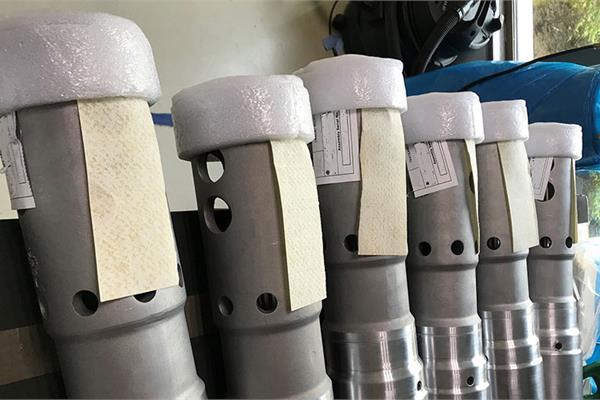
BioPad by Cortec, powered by NANO VpCI, ensures corrosion and surface protection of both ferrous and non-ferrous metals and several other alloys.
Developed by Cortec, BioPad® is a cost-effective, flexible and easily applied corrosion inhibiting device constructed from biobased non-woven material, which provides a sustainable packaging option for ferrous and non-ferrous metals as well as various alloys: galvanized and carbon steels, copper, brass, aluminum, zinc, etc.
It is free of nitrites and chromates, and its high VpCI® concentration, in combination with a thin design, results in material reduction by up to 94% in comparison to similar polyurethane foam emitting devices.
BioPad® provides up to two times as much corrosion inhibiting action as its conventional VCI counterpart and, having recently become a USDA Certified Biobased Product, it falls within the minimum biobased requirements for the mandatory federal purchasing initiative of the USDA BioPreferred® Program.
BioPad® conforms also to NACE Standards TM0208-2008 and RP0487-2000, as well as MIL-I-22110C, and it has been tested by a certified laboratory in accordance with ASTM D-1748 (Humidity Test) and ASTM D 1735 with excellent results
Protecting ship engines and motor shafts in an outdoor storage
A success stories of the application of BioPad® comes from a major marine engine manufacturer that, for years, has been using Cortec® VpCI® to protect the externals of massive ship engines and motor shafts being stored outdoors near the sea for 12 months awaiting shipment.
The company conducted a test to see if they could use BioPad® to protect the internals of the engines from corrosion. They hung one BioPad® inside each of three different engine voids for six months of outdoor testing.
The test was successful as there were no traces of corrosion. Moreover, as BioPad® contains renewable materials derived from corn-processing byproducts, it has a lighter smell and protects more than twice as much space per square meter (1.2 yd22) than the competitor's product, making it a more cost-effective option.
The engine manufacturer ended up ordering 7,000 sheets of BioPad® in order to protect 150 engines per year.
Preservation of high voltage interrupters
Another success stories about the use of BioPad® is delivered by a global engineering services company, which had been using locally made VCI foam inside vacuum-packed 6-mil (150 µ) competitor VCI bags (yellow film) for export of high voltage interrupters to India, China, the U.S.A., and Europe (as well as domestic shipment inside India).
The company was facing issues with rust on parts, along with the consequent rejections and rework this required, and wanted a complete dry packaging solution with zero rust.
Cortec® Corrosion Solutions India Pvt. Ltd. recommended using 6-mil (150 µ) VpCI®-126 Bags and BioPad® inserts without vacuum packing.
The customer began an evaluation process, performing their own modified versions of VIA and Razor Blade Testing on VpCI®-126 Film in their lab and finding it to be successful. They undertook three field trials that involved export to China with good results. This was followed by their trial order of BioPad® pads and custom-size rolls of Cortec's VpCI®-126 Blue corrosion protection film. The customer was very satisfied and has not only implemented BioPad® for regular production and export of high voltage interrupters to all countries but has also extended the same packaging solutions to their vendors.